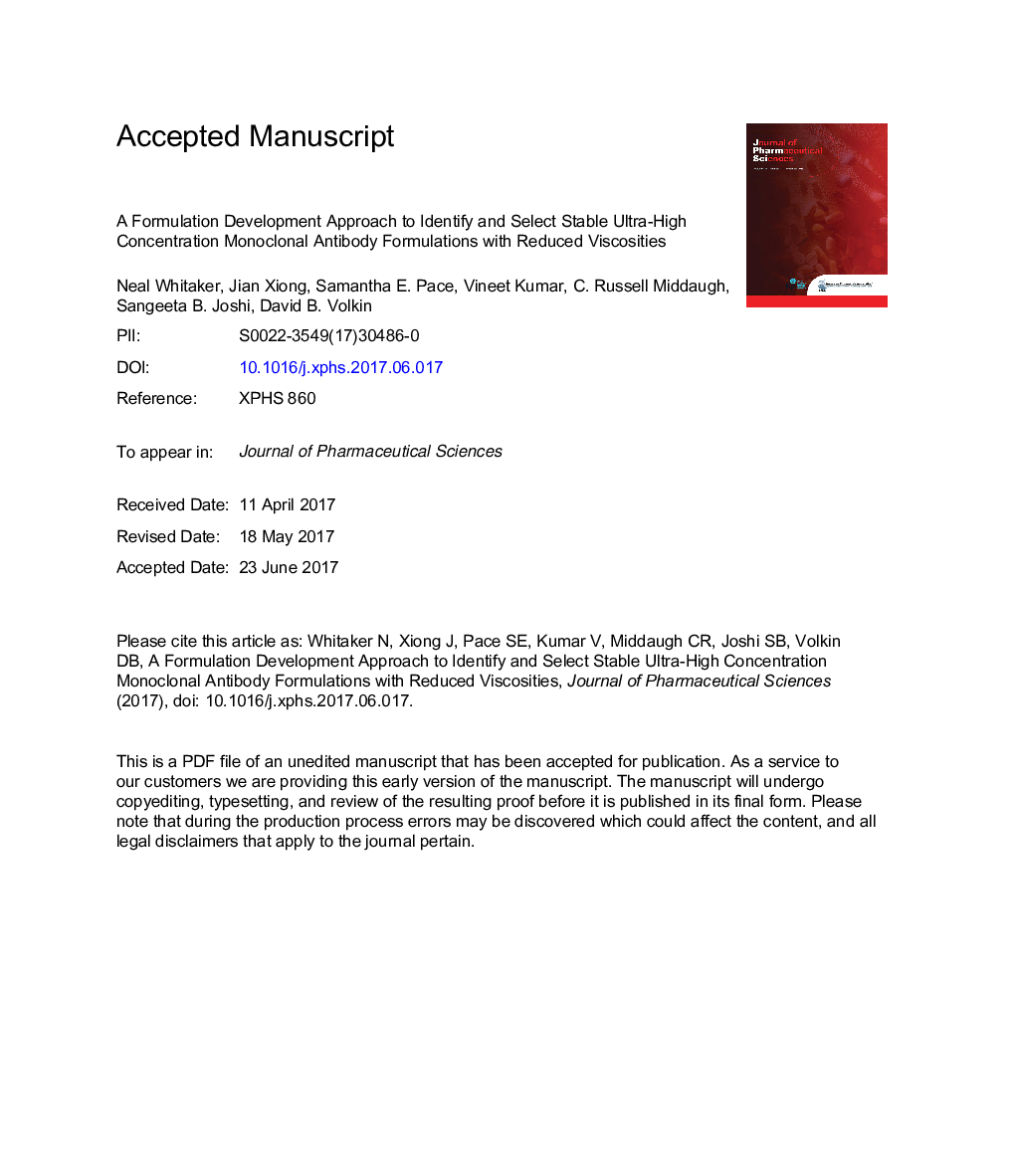| Article ID | Journal | Published Year | Pages | File Type |
|---|---|---|---|---|
| 8513729 | Journal of Pharmaceutical Sciences | 2017 | 44 Pages |
Abstract
High protein concentration formulations are required for low-volume administration of therapeutic antibodies targeted for subcutaneous, self-administration by patients. Ultra-high concentrations (â¥150 mg/mL) can lead to dramatically increased solution viscosities, which in turn can lead to stability, manufacturing, and delivery challenges. In this study, various categories and individual types of pharmaceutical excipients and other additives (56 in total) were screened for their viscosity reducing effects on 2 different mAbs. The physicochemical stability profile, as well as viscosity ranges, of several candidate antibody formulations, identified and designed based on the results of the excipient screening, were evaluated over a 6-month time period under accelerated and real-time storage conditions. In addition to reducing the solution viscosities to acceptable levels for parenteral administration (using currently available and acceptable delivery devices), the candidate formulations did not result in notable losses of physicochemical stability of the 2 antibodies on storage for 6 months at 25°C. The experiments described here demonstrate the feasibility of a formulation development and selection approach to identify candidate high-concentration antibody formulations with viscosities within pharmaceutically acceptable ranges that do not adversely affect their physicochemical storage stability.
Related Topics
Health Sciences
Pharmacology, Toxicology and Pharmaceutical Science
Drug Discovery
Authors
Neal Whitaker, Jian Xiong, Samantha E. Pace, Vineet Kumar, C. Russell Middaugh, Sangeeta B. Joshi, David B. Volkin,
